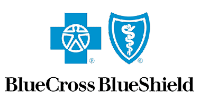How Assistance Works
Streamlining our patient’s specialty pharmacy experience with unmatched full-service convenience
-
1. Check Your Coverage/Benefits Verification
Our team of expert billers finds the best avenues of coverage that minimize out-of-pocket costs.
-
2. Transfer Prescription to AmeriPharma™
We process your prescription by working with your previous pharmacy or prescriber, making the transition quick and easy.
-
3. Prior Authorization
Our team of specialists obtains approval from your insurance companies within 24 to 72 hours.
-
4. Copay Assistance & Financial Aid
We secure financial aid and decrease copays, out-of-pocket expenses, and high deductibles. To date, AmeriPharma™ Specialty Care has secured $55 million in financial assistance for our patients.
-
5. Nursing Care Coordination
AmeriPharma™ puts your schedule and home environment first when scheduling and coordinating one of our specialized nurses for your in-home infusions.
-
6. Delivery Coordination
Medications are always delivered in strict compliance with the specific requirements for shipping. Next-day and overnight cold-chain deliveries are coordinated around your schedule.

What Is Ocrevus?
Ocrevus (Ocrelizumab) is a humanized anti-CD20 monoclonal antibody (mAbs). Initially, CD20 was understood as a B-cell marker in the human body, but over time, studies found these markers on T cells as well. Anti-CD20 antibodies are used to deplete B cells in the treatment of patients with autoimmune diseases such as multiple sclerosis (MS). These antibodies break the inflammation and CNS injury cycle and allow longer periods between relapses. Ocrelizumab was approved in March 2017 by the FDA, and it is the first proven therapy to decrease disability progression in primary progressive multiple sclerosis.
Ocrevus and anti-CD20-mediated therapies are also studied in treatments against B-cell leukemias and lymphomas and other autoimmune diseases such as lupus.

What is Orevus Used For?
Ocrevus is indicated for primary and relapsing forms of multiple sclerosis. It is an infusion given every 6 months.
Multiple sclerosis is an autoimmune disease where one’s own body attacks the myelin sheath covering the nerves in the brain. Studies have shown that B and T cells are operators of these attacks. B cells have a distinguished role in the development and progression of multiple sclerosis because they signal T cells to attack the myelin sheath and cause the initial symptoms and the progression of multiple sclerosis.
In the past, T cells were usually the target of autoimmune disease therapies, but now with the understanding of B cells’ role in the body and especially in the development of multiple sclerosis, many advanced therapies are targeted toward B cells in order to better help patients.
Copay and Financial Assistance
AmeriPharma™ Specialty Care alleviates financial burdens for patients and their families
-
Advanced software locates funding sources to match you with top-dollar foundation programs
-
One of our copay assistance specialists will assist with the application process
-
Automatic updates will be sent to you and your physician on the status of the funding

Ocrevus Dosing Information
Ocrevus is available as a 300 mg/10 ml (30 mg/ml) single-dose vial.
Ocrevus is initially dosed as 300 mg intravenously followed by a 300 mg intravenous infusion after 2 weeks. After the initial infusions, the Ocrevus dosage will be increased to 600 mg, and it will be infused every 6 months. Ocrevus is only dosed twice per year after the initial doses which makes it a convenient option for patients and prescribers.
Ocrevus should be infused under close monitoring in a medical office due to the potential risk of infusion reactions and the need to access medical supplies and personnel. Patients should be premedicated before each infusion. It is recommended to pre-medicate with 100 mg of methylprednisolone (or an equivalent dose of corticosteroid), and an antihistamine such as diphenhydramine at least 30 – 60 minutes before the infusion in order to reduce the possibility of infusion reactions.
Some patients can also be prescribed acetaminophen (Tylenol) before each infusion to decrease the chance of fever.
If an infusion is missed, it should be rescheduled as soon as possible, and the patient’s schedule should be reset to every 6 months from the last infused dose. Patients should be screened for hepatitis B virus, serum Immunoglobulins, and vaccinations before starting therapy. Ocrevus is contraindicated in patients with active hepatitis B or a history of life-threatening infusion reactions.
Ocrevus Side Effects
Infusion reactions are common during Ocrevus infusions. Any of these side effects can happen up to 24 hours after the infusion. It is important to monitor patients during and after the infusions and inform a healthcare provider if any of these symptoms occur, as they are very serious and require immediate attention:
- Throat irritation
- Flushing (face redness)
- Nausea
- Headaches
- Increased heart rate
- Itchiness and hives
- Fever
- Trouble breathing
- Pain
Infection is another serious side effect. Since Ocrevus is used for the treatment of autoimmune disorders, it can lower a patient’s immune response and cause reactivation of viral infections such as hepatitis B virus infections, upper and lower respiratory tract infections, herpes infections, and skin infections.
Common side effects of Ocrevus are:
- Diarrhea
- Back pain
- Signs of a common cold
Insurances Accepted
We accept Medicare, multi-state Medicaid, Medi-Cal, Blue Shield, and most private insurances. Call us to find out more about your coverage.
Get Started in Minutes
Fill out your information and one of our specialists will call you ASAP.
How Much Can You Save?
Speak with a copay assistance specialist
(877) 778-0318By submitting, you agree to AmeriPharma’s Terms of Use, Privacy Policy, and Notice of Privacy Practices









